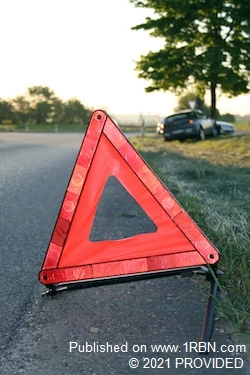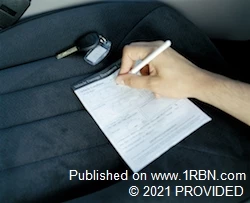10 Minutes, 10 Hours Car Accident Guide


Photo by PROVIDEDAssemble an accident kit for your trunk.

Photo by PROVIDEDRecord details about the accident ASAP.
First 10 Minutes, First 10 Hours After a Road Accident
The key to keeping it together after a crash is to prepare before an accident occurs. Start by assembling an accident kit for your car, and keep it in your trunk. Include basic medical supplies, a pen and paper for notes, and medical alert cards for any family member with allergies or other medical conditions. Download our free 10 Minutes, 10 Hours guide here, and keep one in your wallet, handbag or glove box. Then:
First 10 Minutes
1. Stay calm – Assess the health and safety of your passengers before you do anything else.
2. Call 9-1-1 immediately if you or anyone else in your car is injured.
3. Get out of harm’s way – If property damage is minor and you can do so safely, move cars and people out of traffic.
4. Turn hazard lights on to warn other drivers.
5. Exit your vehicle safely and check on the drivers and passengers in other vehicles for injuries. Make sure help is on the way, if necessary.
6. Call police even if the accident is minor and there are no injuries. Don’t leave until they arrive.
7. Be polite, don’t blame others and don’t admit fault.
8. Take pictures with your cell phone camera if it’s safe to do so.
9. Exchange basic information with other drivers: name, address, phone number, license plate number, driver’s license number and insurance company details. But DON'T discuss blame or any other specific details about the accident.
10. Ask witnesses for names, phone numbers and addresses.
First 10 Hours
1. Secure vehicle for transport; remove valuables or other personal items.
2. Seek medical attention as soon as possible if you were injured, even if you think your injuries are minor.
3. Write notes for your records on everything about the accident, including weather, time, location, statements made, etc.
4. Contact your insurance agent.
5. Revisit the accident scene and take photos. Look for skid marks or anything else that seems important.
6. Photograph your injuries if they are visible.
7. Obtain police reports as soon as they are available.
8. Evaluate damage to your car and get repair estimates.
9. Contact your employer if you cannot work.
10. Contact your attorney ...
-If you are injured and/or there is extensive property damage;
-Before providing any information to an adjuster from another driver’s insurance company;
-If anyone is pressuring you into a quick settlement; and,
-Before the time period allowed for filing a claim (called the statute of limitations) expires.








